Some marriages know the joy of intimate relationships
Podcast: Embed
Subscribe: RSS
Podcast: Embed
Subscribe: RSS

Jackie Hill Perry is one of the most sought after speakers and poets in the country. Her passion for God and using her pen to serve Him led her to write her most recent book: Holier Than Thou: How God’s Holiness Helps Us Trust Him. UrbanFaith sat down to discuss the new book with her. The interview has been edited for clarity. More information on the book is below.
If God is holy, then He can’t sin. If God can’t sin, then He can’t sin against you. If He can’t sin against you, shouldn’t that make Him the most trustworthy being there is?
Bestselling author Jackie Hill Perry, in her much-anticipated follow-up to Gay Girl, Good God, helps us find the reason we don’t trust God—we misunderstand His holiness.
In Holier Than Thou, Jackie walks us through Scripture, shaking the dust off of “holy” as we’ve come to know it and revealing it for what it really is: good news. In these pages, we will see that God is not like us. He is different. He is holy. And that’s exactly what makes Him trustworthy. As it turns out, God being “holier than thou” is actually the best news in the world, and it’s the key to trusting Him.
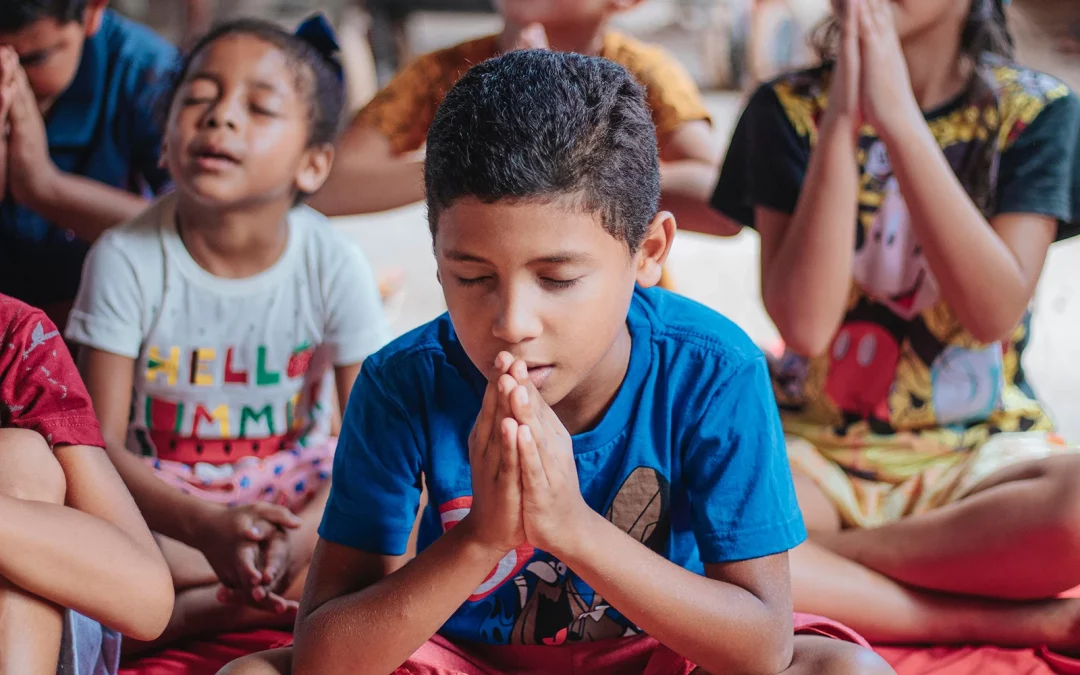
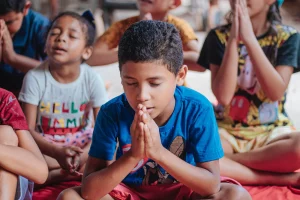
(RNS) — Sunday school and other Christian education programs have suffered during the COVID-19 pandemic, with half of congregations surveyed saying their programs were disrupted.
A March 2022 survey by the Hartford Institute for Religion Research found that larger churches with more than 100 people were more successful in maintaining their educational programming for children and youth, often using in-person or hybrid options. Smaller churches, especially those with 50 or fewer attendees, were least likely to say they continued religious education without disruption.
Scott Thumma, principal investigator of the Exploring the Pandemic Impact on Congregations project, said the findings echoed concerns about general education of schoolchildren, where researchers have seen declines in learning over the last two years.
“My sense is that people knew what good robust Sunday school was or what a successful vacation Bible school was,” said Thumma, drawing in part on open-ended comments in the survey. “And they couldn’t parallel that using Zoom or using livestreaming or using take-home boxes of activities. It just wasn’t the same thing. And so when they evaluated it, it just didn’t measure up to what they previously knew as the standard of a good quality religious education program.”
The findings are the third installment in the five-year project, a collaboration with 13 denominations from the Faith Communities Today cooperative partnership and institute staffers.
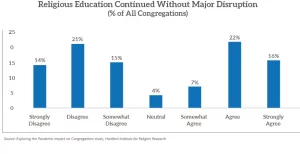
The new report, “Religious Education During the Pandemic: A Tale of Challenge and Creativity,” is based on responses from 615 congregations across 31 denominations.
Comparing data from 2019, churches surveyed in March 2022 reported that the attendance of their religious education programs had decreased an average of 30% among children younger than 13 and 40% among youth, ages 13-17.
“Analysis showed that those who closed their programs had the greatest decline in involvement even after they restarted,” the new report states. “Likewise, churches that moved religious education online lost a higher percentage of participants than churches who modified their efforts with safety protocols but continued meeting in person either outdoors or in small groups.”
The report notes that it’s not surprising the smallest churches experienced the most disruption in their religious education, given the decline in volunteer numbers and additional stresses on clergy during the pandemic.
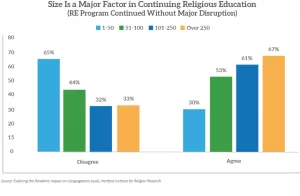
“In the smallest churches (1-50 attendees) pastors were most likely in charge of the religious education programs, while for those between 51 and 100 worshippers, volunteers bore the bulk of leadership responsibilities,” according to the report.
Overall, evangelical churches reported experiencing the least disruption to their educational programs, while mainline churches reported the most, followed by Catholic and Orthodox congregations.
Vacation Bible school, long a staple of congregational outreach to local communities, has also been shaken by COVID-19. More than a third (36%) of churches offered such programs prior to the pandemic. That number decreased to 17% in 2020 and jumped back to 36% in the summer of 2021. Slightly less than a third (31%) reported VBS plans for 2022.
While children’s programming was greatly affected by congregational change during the pandemic, adult religious programs saw the smallest decreases compared with pre-pandemic levels, with a quarter growing since 2019 and an almost equal percentage (23%) remaining even.
But, as with children’s programs, churches with 50 or fewer worshippers saw the greatest loss in adult religious education, while those with more than 250 in worship attendance increased their adult programs by an average of 19%.
Some congregations reported moving Sunday school activities to weeknights or vacation Bible schools from weekday mornings to later hours, with mixed results.
“One said they ‘went from a typical 200+ kids to about 35,’” the report notes, and they “’shortened the number of days and moved VBS to the afternoon.’”
Thumma said innovations including intergenerational and kid-friendly programming helped sustain programs for people of all ages in some congregations. These included revamping of the children’s message time during worship to be more inclusive or older members greeting children who run by during Zoom sessions. Some churches called their all-ages activities “messy church” or “Sunday Funday” as they used interactive educational events.
“It becomes, out of necessity, intergenerational because that allows you to have robust energy and lots of people there,” he said. “But it really is directed at the kids being involved in the life of the congregation in a way that isn’t, like, ‘OK, you go to your class’ and ‘you go to your classes,’ and the classes don’t ever mingle.”
Whether creative steps such as new intergenerational activity will continue remains to be seen, Thumma added.
“I think it should because that’s a valuable strategy,” he said. “One of the things that we’ve seen in lots of our research is the more intergenerational the congregation is, the more it has a diversity of any degree, the more likely they are to be vital and thriving.”
The findings in the new report of the project, which is funded by the Lilly Endowment, have an estimated overall margin of error of plus or minus 4 percentage points.
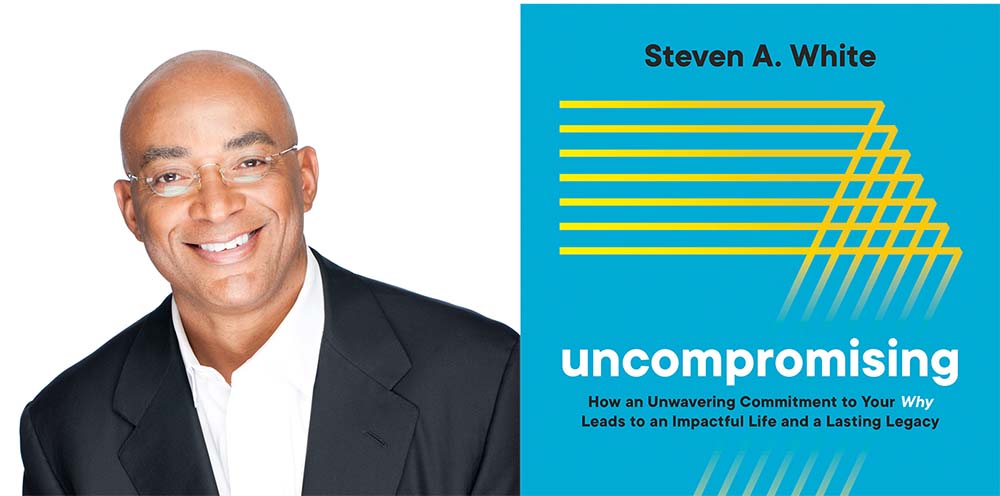
Steve White is a man with an inspiring life and an incredible legacy. He began his journey as the child of a single mother from the housing projects with obstacles set in the way of his success. And yet as a man of faith who embraced his “why,” he overcame the difficulties and is now one of the most successful Black leaders in the nation as the President of Comcast.
As we look towards Mother’s Day, he uplifts the impact of his mother on his story. UrbanFaith sat down with Steve to discuss his book Uncompromising: How an unwavering commitment to your why leads to an impactful life and a lasting legacy. The full interview is above, more about the book is below.
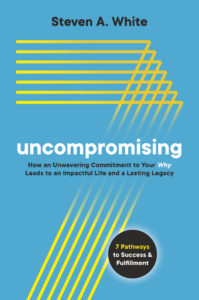
When you adhere to Steve’s seven pathways discussed in the book, you are standing by your why with an uncompromising mindset. And you are doing it with a winning and impactful approach that can help you lead a more fulfilling and purposeful life, while helping you guide others and leave a lasting legacy.
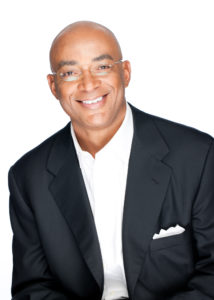
No one can deny that our nation is angry, hurt and frustrated due to the senseless violence that continues to plague us; however, the way we address today’s issues is absolutely critical, particularly for us as Christians. Here are a few suggestions on how we can respond to the violence and pain through active faith.
 Pray in unity.
Pray in unity.
Now, more than ever, the church is commanded to pray in unity. In Matthew 18, Jesus emphasizes the importance of collective spirituality by saying, “If two of you agree here on earth concerning anything you ask, my Father in heaven will do it for you. For where two or three gather together as my followers, I am there among them.” Yes, times are tough and you may find it difficult, but praying together not only obeys these words of Christ, but also serves as a powerful tool of encouragement and reminds us that we are not alone in the struggle. Besides, Christianity is a communal faith, and historically, many African and African-influenced cultures have always valued collective spirituality. Most importantly, we must remember that we serve a God who answers prayer, not always in the ways we expect, but always effective according to His will!
Educate yourself and others.
Hosea 4:6 declares, “For my people perish for lack of knowledge.” In order to actively address today’s issues, it is absolutely critical that we are prepared, both spiritually and intellectually. Take the time to educate yourself on the laws, procedures and government systems that affect both you and your family. However, it is just as important to equip yourself with Scriptures that will assist you in learning strategies that respect government while actively advocating against injustice and violence. Throughout the Bible, Jesus teaches us the importance of knowing your rights as both citizens of your home country and citizens of God’s kingdom. (Matthew 22:15-22, Luke 4:38-53, Mark 3:1-6) It is imperative that you know your rights in order to prevent them from being violated.

Be persistent and hopeful in seeking justice.
In Luke 18, Jesus tells a parable that is not often shared among members of the Church. It is a parable about a persistent woman who goes to a judge to receive justice. Although he is not righteous, the judge gives the woman justice because of her persistence. As Christians, will we have enough faith to be persistent and seek God, even when dealing with a broken and unrighteous government?
The call to action here is clear. Keep seeking justice, even in a broken system, because the persistence will eventually bring about change.
Love your neighbor.
In the midst of all that is going on, this is the key. We have to choose to love our neighbors the way God loves (Matthew 22:38-39). We must love because we have been shown love, even when it is uncomfortable and inconvenient. Showing acts of love to our neighbors, particularly to those who historically have not always shown love in return, will begin to build the bridges across the ravines of fear that divide our nation and lead to the violence in the first place.
It is important to see here that love covers a multitude of sins, the sins that separate us from one another and God. Fear drives a lot of the sin of violence in this nation. It is the fear that we will keep killing one another, fear that things will not change, fear between races, and fear within communities. However, it is perfect love that casts out all fear (1 John 4:18). As Dr. Martin Luther King Jr. said, “I have decided to stick with love. Hate is too great a burden to bear.”
Share your thoughts on the recent violence and your plan of action as a Christian in today’s society below.


(RNS) — As Miami-Dade County in Florida grapples with a housing affordability crisis, houses of worship are being recruited to build affordable homes on vacant or underutilized church land.
The national nonprofit Enterprise Community Partners on Thursday (April 21) announced $1.3 million in grant funding from the Wells Fargo Foundation that would go toward helping 15 South Florida congregations convert underused church property.
The nonprofit will assist clergy, who may lack the resources or knowledge to cut housing deals, in navigating the development process, negotiating long-term ground lease agreements and vetting development partners, such as architects and designers.
This effort is part of the nonprofit’s Faith-Based Development Initiative that launched in 2006 in the Mid-Atlantic region, where it has helped faith-based organizations create or preserve more than 1,500 affordable homes and one community-based health clinic.
So far, $8.5 million has been committed in a new push to help congregations in Atlanta, New York, Baltimore, Miami and Seattle build affordable housing on their properties.
In South Florida, this money is being made available just as Mayor Daniella Levine Cava in early April declared a state of emergency over housing affordability.
Faith leaders, along with county and housing officials, on Thursday (April 21) gathered at Koinonia Worship Center to talk about the steps congregations could take to build housing on their church land. The gathering was held in partnership with the Collective Empowerment Group of South Florida, a group of local churches that aims to provide homebuyer training and credit counseling services in the area.
David Bowers, vice president at Enterprise Community Partners, said this effort makes “radical common sense,” allowing congregations that are “sitting on a resource” to “be good and faithful stewards.”
“We will share lessons from you with others in cities around the country who are at work as we expand this movement,” Bowers, who is also an ordained minister, said Thursday.
Over the last few years the county has partnered with faith-based organizations to build seven affordable rental developments, said Jorge Damian de la Paz, a representative of the mayor, at the Thursday gathering. These projects stretch across Miami-Dade County, from Miami Gardens down to Richmond Heights.
Citing property records, de la Paz said there are more than 1,220 parcels in Miami-Dade County currently being used exclusively for religious purposes. This includes churches, synagogues and mosques. In total, houses of worship sit on at least 95 million square feet of land in Miami-Dade County, he said.
“Religious organizations, in aggregate, are some of the largest owners of land in Miami-Dade County,” de la Paz said.
“Some of these lots could potentially be used to build affordable housing or … some type of community facility to serve congregants in a new way and generate additional revenue to the organization,” he said.
One example is Second Baptist Church of Richmond Heights. In 2016, the church opened the Reverend John & Anita Ferguson Residence Apartments, which provides 79 units of affordable housing for seniors.
The Rev. Alphonso Jackson, pastor of Second Baptist Church, helped oversee the project, which was a vision of the former pastor, the Rev. John Ferguson, who secured the land adjacent to the church.
“It was our desire to complete the vision he had,” Jackson said on Thursday.
Jackson said they sought to secure the necessary funds to build the project in a way that “wouldn’t be a burden to the church.” They formed a community development corporation and dealt with housing bonds, tax credits and grant funding.
Although it was years in the making, “it ended up being a wonderful project,” Jackson said.
“It adds to the community. It increased the property value of the community. It is not an eye sore. It is something very nice … We are very proud of it,” he said.